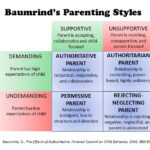Discover the most effective parenting styles for children with autism and unlock the potential for optimal development and growth in your child. This comprehensive guide explores various strategies that have been proven to foster communication, social skills, and independence in children on the autism spectrum. Designed to empower parents with knowledge and tools, this article aims to help you navigate your unique parenting journey with confidence and compassion. Let’s delve into the world of autism and uncover the best parenting styles to support your child’s unique needs and abilities.
“Understanding Autism: A Comprehensive Overview of the Spectrum”

Autism, often referred to as Autism Spectrum Disorder (ASD), is a complex developmental condition that involves persistent challenges in social interaction, speech, and nonverbal communication. ASD is known as a “spectrum” disorder because there’s wide variation in the type and severity of symptoms people experience. This broad range of conditions, including Asperger’s Syndrome, Childhood Disintegrative Disorder, and Pervasive Developmental Disorder, can greatly impact a child’s life. Understanding the intricacies of autism is vital for parents to devise effective parenting strategies. The ‘spectrum’ aspect of autism necessitates a personalized approach to parenting, tailored to each child’s unique needs and abilities.
“Identifying the Best Parenting Styles for Children with Autism”

Recognizing the most effective parenting styles for children with autism is imperative for their development and growth. Autism often comes with unique challenges, making the traditional parenting approach less applicable. Therefore, choosing a style that caters to an autistic child’s specific needs can be a game-changer. From structured parenting that emphasizes routine and predictability to responsive parenting that focuses on understanding and meeting the child’s emotional needs, identifying the right style can significantly impact a child’s progress. This section will delve deeper into these parenting styles, providing insights on how to best support children with autism.
“How to Foster Positive Growth: Effective Strategies for Parenting Autistic Children”

Nurturing positive growth in autistic children requires a specialized approach that considers their unique needs and abilities. It’s essential to implement effective strategies that promote their development, helping them to thrive. These may include structured routines, visual aids for communication, and sensory-friendly environments. Additionally, involving them in social skills training and special education programs can significantly improve their interpersonal interactions and cognitive abilities. Patience, understanding, and consistency are key in this journey. Parents should also seek professional advice to stay updated on the latest therapeutic interventions designed for children with autism. Remember, the ultimate goal is to enhance their quality of life and ensure they reach their full potential.
“The Impact of Parenting Styles on the Development of Autistic Children”
![]()
The influence of parenting styles on the development of children with autism is significant. They require a unique approach to parenting that fosters their growth and development while considering their unique needs and abilities. Parents must be willing to adapt their strategies to best support their child’s developmental milestones. This includes promoting social integration, supporting emotional regulation, and encouraging academic success. By understanding the most effective parenting styles for autistic children, parents can foster an environment that promotes their child’s well-being and overall development. This can greatly enhance the quality of life for both the child and the family.
“Parenting Challenges and Triumphs: Real Stories from Parents Raising Children with Autism”
In our section on “Parenting Challenges and Triumphs: Real Stories from Parents Raising Children with Autism,” we delve into the heartwarming and sometimes heart-wrenching tales of parents navigating the world of autism. These narratives provide valuable insights into the best parenting styles for children with autism, offering practical advice and emotional support. This section aims to empower parents, enhancing their understanding of autism, thereby improving their child-rearing strategies. The experiences shared here also foster a sense of community, demonstrating that while the journey may be challenging, the triumphs make it all worthwhile. These real stories are a treasure trove of wisdom, resilience, and love.




